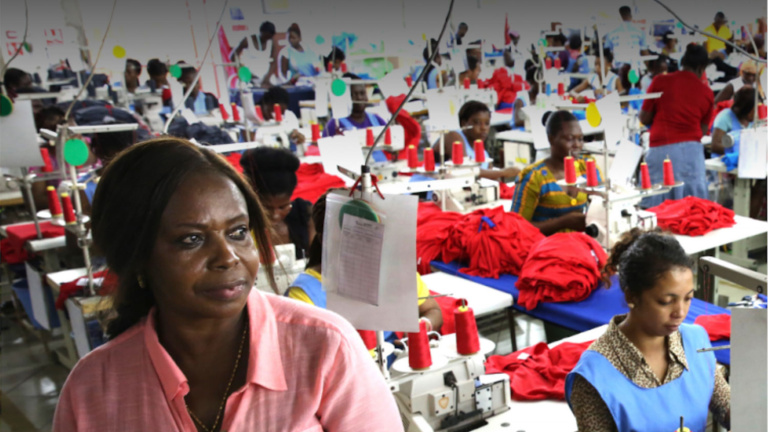
Policies to Mobilise the Private Sector: Open Your Mind
Belgium has embraced a private sector policy for development that aims to capture the multiple perspectives and opportunities embodied by the Sustainable Development Goals.
When I came into office in 2014, a feeling of unease with the private sector was still palpable across the development sector. Sure enough, bad memories of past tied aid and white elephants had done little to alleviate such concerns. Nor had the Washington Consensus delivered on its promises of spurring economic prosperity, adding only to an image of unscrupulous corporations exploiting the less endowed regions of the world.
Such perceptions oddly contrasted with our domestic experience. Our own societies had historically succeeded in fostering free enterprise as the main driver for innovation, jobs and prosperity in general. It seemed as if we had a very different conception of how to help shape development in other places.
How much has changed since 2014, with the advent of the Sustainable Development Goals (SDGs)!
One of the many merits of the SDGs, has been to understand that we are now all developing countries in one way or another. Whether it is about gender equality or renewables, we all have significant efforts to make, regardless of our relative levels of prosperity. But recognising that we need private actors to push forward sustainable development has been no less of a game changer.
Different angles to the volte-face
One perspective has been to focus on inputs. Now conscious of the investments required to reach the SDGs by 2030, “trillions instead of billions”, the need to leverage private resources has been put central to implementing the agenda.
Secondly, while the world has been converging, it became clear that a small group of countries was still being deprived of access to finance, e.g. through Foreign Direct Investments, necessary for their development. As such, the need to de-risk private investments in those least developed and fragile countries has since become a bigger priority for many donor governments, including Belgium.
Thirdly, for lack of true governance of certain global goods, private actors needed to act responsibly and incorporate sustainability in their business models, for which the framework of the SDG-Agenda would prove instrumental.
Lastly, kick-starting local private sector development was understood as a precondition to a positive dynamic of change. Small and Medium Enterprises, especially, are of essential importance since they truly harbour the economic empowerment of people.
For Belgian development policy, conceiving a private sector policy is about capturing all these perspectives. Inclusive and sustainable economic growth has therefore been an essential pillar of our development policy since 2014, firmly embedded within the SDG-framework.
A new Belgian approach
That might seem ambitious for a medium-sized donor like Belgium. Nonetheless, we believe in our added value and have been committed to take steps in modelling such a wide ranging policy.
Starting with private sector development, four objectives are now underpinning our approach:
– Provide investment capital to enable companies to contribute to the SDGs
– Promote an enabling environment (e.g. land registration, contracting laws, infrastructure…)
– Strengthen and increase supporting services to the private sector
– Develop inclusive and sustainable market systems
For this purpose, a major overhaul in our institutional setup has been implemented. Private sector development has been instilled in the organisational core of Enabel, the Belgian development agency, increasing partnership options and making sustainable entrepreneurship and job creation henceforth part and parcel of all new bilateral agreements.
Likewise, the Belgian Development Finance Institute, BIO-Invest, has opened up to private capital and increased its portfolio to include new catalytic sectors related to climate-change and digitalisation. Lower return investments will be made acceptable, allowing for more development-impact focussed strategies and increased investments in LDCs and fragile contexts.
Another objective is obviously about leveraging resources, yet it goes beyond the mere raising of capital. That is because private investors can often carry an approach that is more geared to results. This is the idea behind the first-ever Humanitarian Impact Bond, launched by Belgium and the International Committee of the Red Cross (ICRC) in 2017. Measured by pre-determined targets, outcome funders will repay social investors pro rata, thus spreading risks across private and public partners in the construction of physical rehabilitation centres in Mali, Nigeria and the DRC. A legal framework is currently being conceived in order to expand the scope of such innovative financing instruments.
Yet another initiative has been the Belgian SDG-Charter, the starting point for SDG-driven partnerships with the Belgian private sector. Signed by more than one hundred companies, civil society organisations, and the public sector, the charter serves as a commitment for all signatories to incorporate the Agenda. But it also aims to become a reference platform to forge partnerships along specific value chains and foster dialogue along topics, such as sustainable agricultural exports. At this stage, we are looking into incentivising such ventures through a Business Partnership Facility, allowing for financial or other support, such as counselling and knowledge sharing for scaling up.
Finally, private philanthropy has been on a steady rise, up to the level of establishing itself as a formidable resource flow alongside Official Development Assistance. Herein lies an interesting alliance for medium-sized donor governments, in view of pushing a value-based agenda and filling global financial gaps. The SheDecides-movement, advocating girl’s and women’s empowerment and having raised over €400 million since last year’s launch in Brussels, is a prime example of the extraordinary potential of such collaborations.
Taking the leap
With the adoption of the SDGs, development has taken a broader perspective than the Millennium Development Goals, not in the least with regards to involving private actors. All this is still new to our development organisations. Certainly, a lot of lessons will have to be learned and taken on board during the process, which makes it all the more challenging. But consider that, since 1990, over one billion people have moved out of extreme poverty. Much of this remarkable achievement has been private sector induced. It means that private sector policies should be explored and embraced by all development actors.
This will involve continual efforts to adapt our institutions accordingly, but perhaps above all, it will require adjusting our mindsets in order to grasp the opportunities that lie in front of us.
About the author
Alexander De Croo is Belgium’s Deputy Prime Minister and Minister of Development Cooperation – Twitter: @alexanderdecroo
Read the full magazine issue







